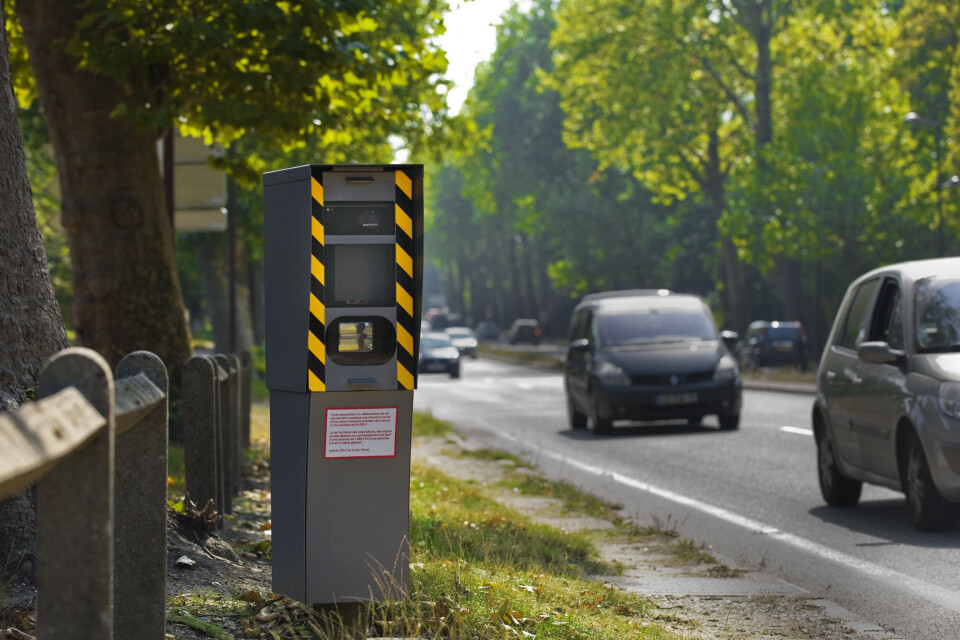-
Do I need separate caravan insurance in France?
Fixed and mobile models have different rules and coverage
-
How can I know if speed limit is 80 km/h or 90 km/h on road following changes?
More than 50 departments have partially or fully overturned 2018 law change reducing limits on secondary roads
-
+39% increase: Paris sees major parking cost changes in 2026
Arrondissements in the east saw the largest increase in costs
Speed radars should check cars are safe and insured, says French MP
Speed cameras are currently massively under-used, argues Damien Pichereau

Damien Pichereau represents Le Mans, is a member of President Macron’s République En Marche party and, as one might expect from someone who lives in the home of the 24 Hours endurance motor race, is passionate about cars.
The MP drives a Hyundai hybrid, but also owns a 30-year-old Porsche 911 – currently in the garage and off the road following an accident.
One of the leaders in pushing through a recent bill ending the monopoly of car makers in the supply of spare parts, he has hit the headlines again by proposing that the French contrôle technique (CT) car check be better enforced, especially by using speed trap radars.
He also wants insurance to be checked as a precondition for a vehicle getting a CT exam.
“For me, the basic rules of driving a car, making sure you have a driving licence, valid insurance for the vehicle, and a contrôle technique are simple and obvious,” he said.
Read more: Report finds 770,000 people driving in France without valid licence
“Now, with the number of radar speed traps and with a centralised database for contrôles techniques, it seems daft not to make sure, when a car is caught speeding, that it has a valid contrôle technique.
Read more:France’s private speed camera cars: Where are they, who drives them?
“The technology exists, it is accurate, and we should use it.” Mr Pichereau said an estimated 500,000 vehicles on French roads which should have a CT do not currently have one.
“It is a huge figure and my proposal will help bring it down,” he said. “You have to remember that it is things like worn tyres, and brakes or lights that do not work, which are often picked up during the contrôle technique inspection.
‘It is obvious that a much quicker method of having more insurance checks will be at the contrôle technique’
“While it is now, fortunately, relatively rare for technical problems with a car to be the cause of an accident, the risk is still there and we should do all we can to reduce it.”
Similarly, by having insurance documents checked before a car is put on the CT inspection ramps, he believes the number of people driving without insurance will be reduced.
Official figures from 2020, the latest available, showed that 27,332 people were involved in accidents where the other driver did not have car insurance.
The fund set up to cover such accidents paid out €106.3million, of which €91.5million was to pay for the treatment of physical injuries to the parties involved. Of the drivers without insurance, 60% were under 35 years old, and 80% were men.
“At the moment, it is not possible to match insurance documents with cars caught speeding on radar cameras and, technically, the details of being able to check the insurance sticker with a speed camera is difficult, although it is being worked on,” said Mr Pichereau.
“For me, it is obvious that a much quicker method of having more insurance checks will be at the contrôle technique.”
The Ministry of Transport said it was aware of Mr Pichereau’s proposals, but had no plans to push them forward through decrees or ministry-sponsored bills.
Mr Pichereau, for his part, conceded the “delicacy” surrounding measures which some might see as being repressive, especially after the gilets jaunes protests of 2018 and 2019, partly caused by anger at the imposition of an 80km/h speed limit.
“But French people love their cars, and by far the majority of them see it as common sense that basic rules of contrôles techniques and insurance are respected,” he said.
Read more: A guide to French car insurance
Read more:Explained: Car contrôles techniques checks in France
“I will carry on pushing for my proposals to be made law – if the Ministry continues to say no, I will work through parliament to get a law on the books that way.
Related articles
France tests speed cameras that also check phone and seatbelt use
Contrôle technique for two-wheelers: Common sense or pointless?
Process, costs, carte grise: How to register a car in France
























